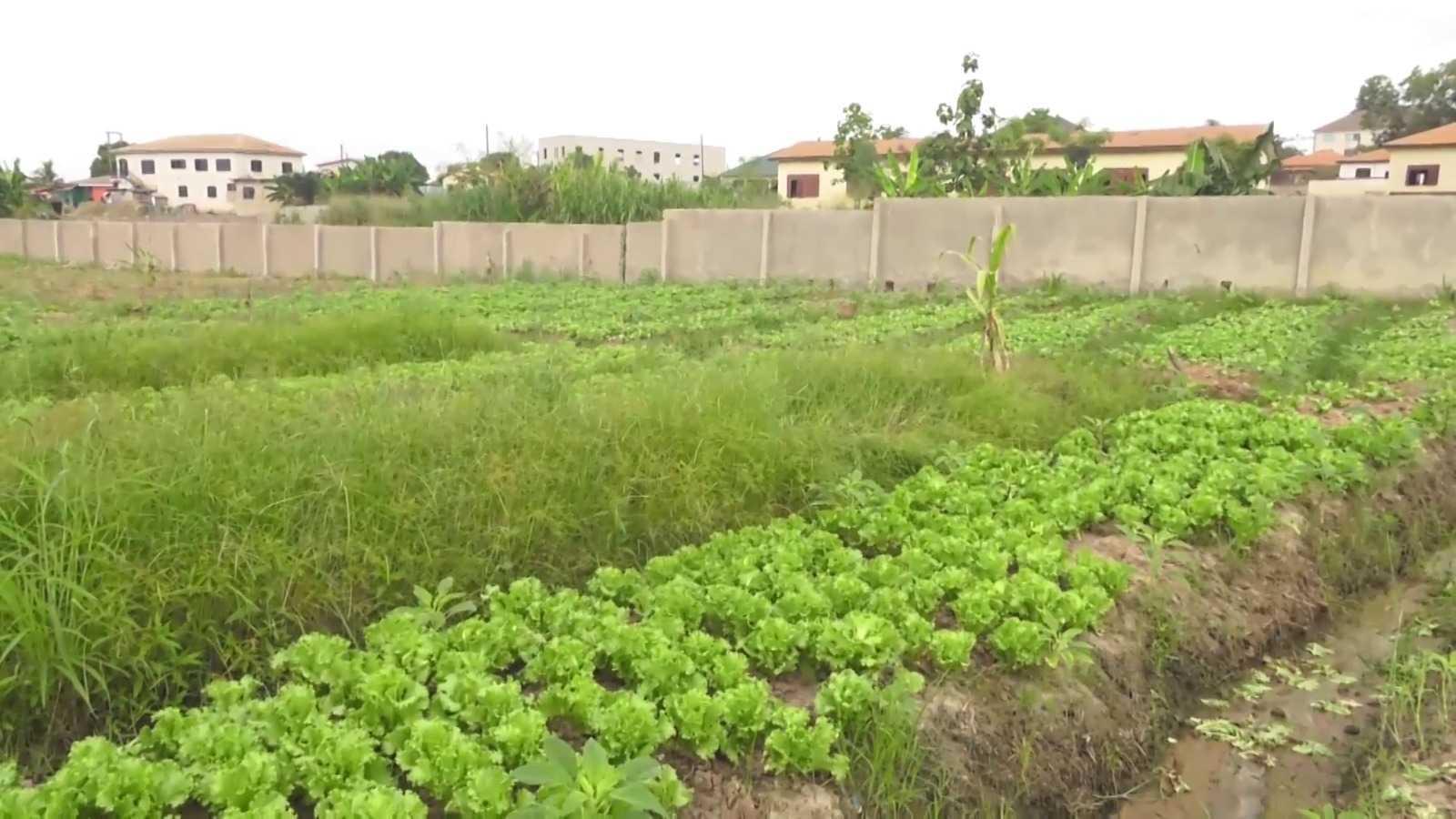Africa-Press – Ghana. The increasing sale of farmlands within urban centres for real estate development purposes, is forcing some farmers within the Oforikrom municipality of the Ashanti Region to opt out of food production.
Several farmlands in the area have been converted for residential development over the last few years.
A vegetable farmland at Emena, a suburb of Kumasi, has reduced in size drastically in the last 5 years.
The once 15-acre land had nine farmers jointly producing cabbage, lettuce, and spring onion on it.
But, the number of farmers has dropped to four and the farm-size reduced to 6 acres following the conversion of the farmland into one for estate development.
“Persistently, we are told the lands have been sold for redevelopment. They keep filling the land, leaving some of the affected farmers with no other option than to opt out of the farming business. As I speak to you, I don’t know what will happen to my farm the next day, because the chiefs are bent on selling it, even though it is within the buffer zone”, Ernest Sarfo, a vegetable farmer at Emena indicated.
Another visibly worried farmer, Comfort Atta-Wusu said “we are committed to the farming business and it has been our source of livelihood for decades but we are gradually giving up, because our farm size keeps reducing. Our livelihood is just crashing and we can’t do anything about it. If government can secure some of these lands only for agricultural purposes, then it will come as a relief to us”.
President Akufo-Addo at an engagement with the National House of Chiefs in September pleaded with the traditional authorities to halt the sale of such lands.
“It has come to my attention that already, delineated agricultural lands are being released for real estate development. I will thus encourage you to manage the temptation of converting lands for non-agricultural purposes, as our collective interest in food production depends on it,” he said.
The farmers fear the situation, if left unchecked, will pose a threat to food security in the country.
Already, Ghana continues to spend millions of dollars to import food, annually, according to the Ministry of Finance.
This, many believed, has contributed to the depreciation of the cedi against major foreign currencies.
The Municipal Chief Executive for Oforikrom, Abraham Kwame Antwi said steps are being taken to engage chiefs to discontinue the use of the farmlands for estate development.
“When an area develops, it is always the agric land that suffers. But we are engaging chiefs to let the farmers have access to some of the lands, especially the ones closer to water bodies. Again, we have written to the KNUST authorities to release some of their undeveloped lands for our farmers to use, and the request has been granted. So, we will continue to look at alternatives, including providing high-yielding seedlings to our farmers to increase production even on small land,” he assured.
For the farmers, giving them the right support will enable them to produce more than we can eat. This, they are convinced, will also lead to a drastic cut in food imports.
For More News And Analysis About Ghana Follow Africa-Press







